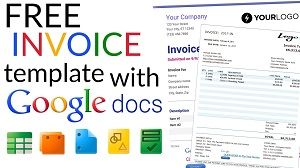SALES INVOICES: Several processes must take place after your business sells a product or a service to a customer.
As a rule, you would need to give the customer an invoice (sometimes called a bill).
This is law if the business and the customer are both VAT registered (i.e. a business to business transaction). If so, the invoice must include:
- The total amount that the customer needs to pay to the business.
- Payment terms (e.g. when the customer must make a payment to the business).
Note: There are key differences between an invoice (bill) and a receipt (an acknowledgement of payment). Even so, the business and the customer will both have certain payment obligations (details below).
Information an Invoice Must Contain
The details written on invoices are a key part of invoicing and taking payment from customers. Besides displaying the word ‘invoice’ they must also include:
- An identification number (must be unique to each separate invoice).
- The name, address, and contact information of the company making the sale.
- The company name and address of the customer receiving the invoice.
- A clear description that itemises the goods or services provided to the customer.
- The supply date (the date that the business provided the goods or services to the customer).
- The date of the invoice (often the same as the supply date).
- The amount (or amounts) charged to the customer.
- VAT amount (where applicable).
- The total amount owed by the customer to the business.
Limited Company Invoices UK
As a limited company, you need to include the full company name on all invoices created for customers. The name of the company must be the same as it appears on the certificate of incorporation.
Note: You can also display the names of directors on limited company invoices. In this case, you would need to include the names of all company directors.
Sole Trader Invoices
As a sole trader, you must display all the standard information an invoice must contain. But, specific to sole trader invoicing, they must also:
- Include the proprietor’s name and any trading name being used.
- A correspondence address to receive any legal documents (if it is using a business name).
VAT Invoices
 You must be using VAT invoices on all business to business transactions. In simple terms, it means the business and the customer are both registered for Value Added Tax.
You must be using VAT invoices on all business to business transactions. In simple terms, it means the business and the customer are both registered for Value Added Tax.
Note: VAT invoicing for customers will contain a lot more information than the standard details showing on non-VAT invoices.
Obligations of Payment from Customers
Your Right to Get Paid
The laws on selling goods and services allow businesses to set their own payment terms. So, you can choose to offer discounts for early settlements and upfront payments.
As a rule, the customer must pay the business within thirty (30) days of receiving the invoice, goods, or service. Even so, you can make a mutual agreement to settle the bill on a different payment date.
Note: There are situations when you can make a statutory demand as a request of payment for what is owing.
Right to Charge Interest for Late Payment
The seller has the right to charge interest on late commercial payments, even though they can choose not to.
Liability for Disputed Card Payments
A customer can ask their credit or debit card issuer to reverse a transaction. In this case, they would be trying to reclaim the value of the transaction from the business. It is a process called a ‘chargeback’.
Consumers would be able to make chargebacks on disputes that involve card payments on certain situations, such as if:
- They never received the item that they purchased.
- The item did not fit its description.
- Someone used the customer’s card in a fraudulent manner to purchase the item without their permission.
Note: The customer has 120 days from when the transaction got debited or from the date when they were due to receive the goods or services.
Minimising Chargebacks
The business would only be liable for a chargeback if the goods are faulty (or not as described) if a customer uses their PIN.
A clear signature may help if you cannot accept a PIN. But, there would be no guarantee against a chargeback.
Note: The risks of a chargeback will be higher in ‘card-not-present’ transactions (e.g. when shopping online).
Financial Conduct Authority Regulation
UK businesses can set up a process to take a sum of money from a customer every time they use a service. A typical example would be for online trading. In this case, the company may need authorisation from the Financial Conduct Authority.
What if customers pay you in large amounts of cash? In this case, the business may need anti-money laundering registration to get added protection against money laundering schemes.
Protecting and Storing Customer Data
A different section explains the principles of the Data Protection Act 2018 citation c 12. The UK Act of Parliament protects personal data stored by businesses in paper filing systems and on computers.

